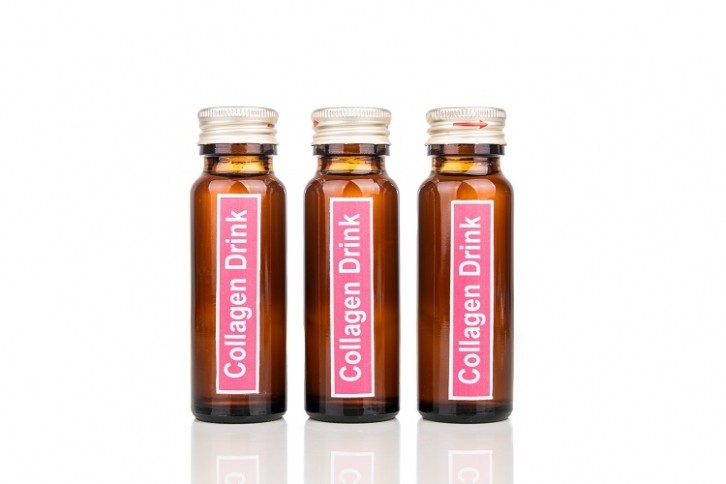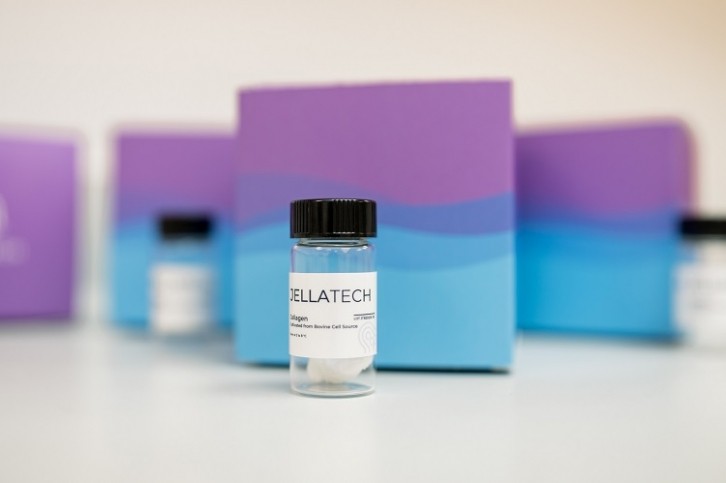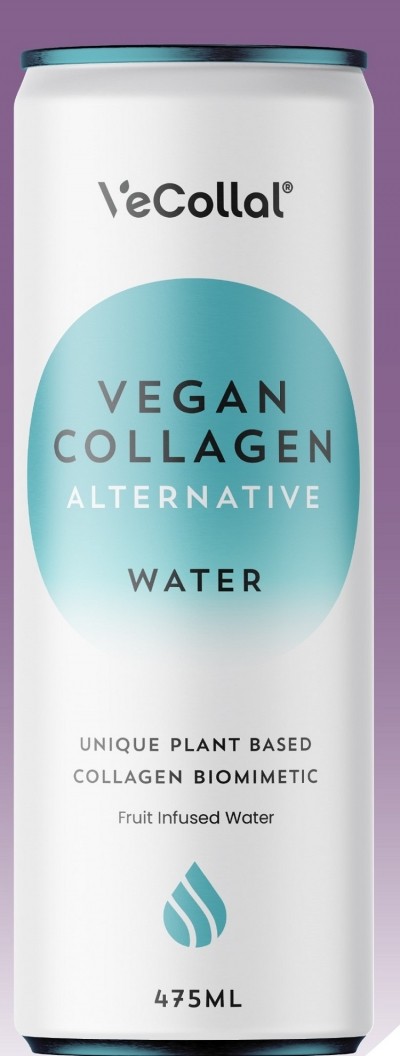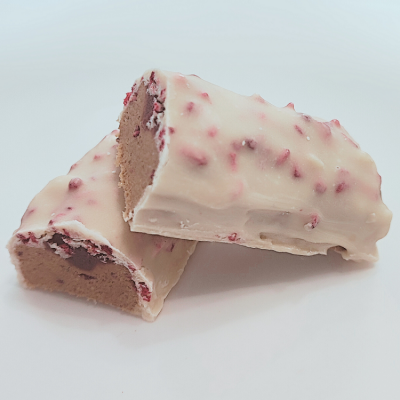How is animal-free collagen made and does it work?

Collagen has long been trending in the nutraceuticals space, and for good reason. Research suggests the protein brings benefits for skin, hair, nails, joints and bones, and if that’s not enough, it’s also been linked to muscle recovery.
While it may come across like a magic ingredient, not all agree with its production methods. Collagen is naturally only found in animal flesh like meat and fish – including cows, chickens and seafood – that contain connective tissue. For vegetarian and vegan consumers, animal-sourced collagen is therefore off the table.
Environmentally conscious consumers, no matter their dietary preferences, may also be hesitant to pop a collagen pill or infused beverage. A common byproduct of the cattle industry, collagen has been linked to deforestation in Brazil.
But not all collagen is sourced from animal bones and connective tissue. A new wave of innovators are rethinking production methods to offer more sustainable alternatives to food, drink, and supplement companies.
Don’t have a cow! How innovators make animal-free collagen
Cellular agriculture is the broad term used for the production of agricultural products from cell cultures, be it cell-based meat or precision fermentation-derived dairy. Although not as well known, cell cultured collagen also fits under the cellular agriculture umbrella.
In the US, Jellatech is working to produce human and mammalian collagen in a lab. The North Carolina-headquartered company believes in a future where lab-grown solutions become commonplace, we were told, to ‘protect our planet, preserve its resources, and safeguard its inhabitants’.
The goal is to create collagen with as good or better performance than the current market standard. Jellatech ‘selectively farms’ cell types to find the ‘best producers’, and then further refines their environment to optimise collagen production. “Obtaining these optical cells beings with a small skin punch biopsy, from which we isolate cells,” explained founder and CEO Stephanie Michelsen.
“We eliminate the need to return to the animal, allowing continuous collagen production from the initial biopsy using biotechnological tools. This process involves expanding and reusing the cells.”
Having fed the cells a customised media, the start-up harvests the collagen – which it claims is completely free from animal cells or DNA.

As to whether the final product could be labelled vegan or vegetarian, Michelsen explained there is ‘still some confusion’ about how to label products made this way. Jellatech prefers to emphasise the cruelty-free and slaughter-free aspects of the production. “We leave the decision to categorise it up to the individual consumers and ultimately the market based on the voice of the consumer.”
Plant-based collagen to disrupt functional food and drink, today
Although cell-based collagen is yet to enter the market – as a novel food ingredient, it would be required to undergo a pre-market approval process – other forms of animal-free collagens are.
In Belgium, VeCollal is turning to plants to make ‘biomimetic’ versions of human collagen types. It does this by first analysing the exact amino acid profile of the human collagen, for instance type 1. It then leverages artificial intelligence to identify ‘powerful inductors’ – usually herbal extracts – that can have a genetic influence on collagen production.
“Through precisely blending all the individual amino acids – which usually come from the fermentation of glucose – and the inductors in a very special ratio, we create a biomimetic of human collagen, mimicking both its form and function,” founder Tony Van Campen told FoodNavigator.
VeCollal’s offering is not collagen in the strictest meaning of the word, because it does not have the typical collagen molecular structure. But when used in nutraceuticals or food and beverage, whereby it is digested and broken down into amino acids, Van Campen assured us ‘this does not limit its efficacy’.
“The key to the functioning of VeCollal lies in the exact ratios of amino acids that are used and the choice of inductors that are able to replace the signalling function of collagen peptides as used in animal collagen.”
Other plant-based collagen makers exist, including UK headquartered ProTec Nutra, which has coined its vegan collagen product Vollagen. To make Vollagen, the company starts with non-GMO corn, to which it applies a ‘proprietary multistep’ fermentation process. “This allows us to combine the exact ratio of amino acids found within human collagen,” Josh Perry, distribution and product manager at ProTec Nutra, told this publication.
How does animal-free collagen compare to its conventional counterpart?
For the health conscious consumer looking to dip their toe in the animal-free collagen market, the big question will be: how does the efficacy of animal-free collagen compare to its conventional counterpart?

ProTec Nutra’s Perry assured us Vollagen is just as bioavailable. “The amino acids are also isolated, so they are ready for the body to absorb easily, thus making this equally as bioavailable as some hydrolysed animal collagen.”
In Belgium, VeCollal has research to prove its ingredient’s worth. VeCollal Type 1, which targets skin and beauty from within, has been tested extensively over four clinical trials to date, revealed founder Van Campen. Its latest institutional review board (IRB) independent trial, published in the Journal of Functional Foods, demonstrated its efficacy – with wrinkle reductions of 32.9% after eight weeks of a daily dose of 5g.
“It’s very, very effective – actually outperforming most of the published clinical trials we found on animal collagen peptides.”
Over in the US, Jellatech’s collagen is not yet on the market, but told us it benchmarks quality by comparing it to the industry standard: collagen extracted from mammalian tissue.
“We assess both the physical properties and the functionality of our collagen,” explained Jellatech’s VP of business development Jaclyn Shingara. “Jellatech’s collagen boasts an exceptional purity level, exceeding 95% type 1 collagen.
“In short, our collagen is completely identical to that obtained from animals – except it was produced in a laboratory setting.”
Plant-based vs cell-based production methods
Innovators choose their animal-free collagen production methods for specific reasons.
Jellatech believes that if consumers are looking for a ‘truly identical, functional collagen and/or gelatin’, then cell-based technology is the ‘only path’ to that goal. “Our approach of harnessing the cells’ natural ability not only produces but modifies and fine-tunes the collagen as needed,” explained CEO Michelsen. “We further enhance or ‘boost’ production using biotechnological tools.”

The start-up is unconvinced the same collagen can be developed using fermentation or plant-based methods, contending that these organisms do not inherently produce collagen and lack the ‘machinery’ to do so precisely.
On the plant-based side of things, VeCollal sees merit in cell cultivated collagen – but only for specific use cases. “It’s definitely an interesting approach,” said founder Van Campen. “However, we feel that this is mostly useful for when a collagen molecule is really needed, for instance for topical or medical applications.”
As to its use in nutraceuticals, the company believes it’s ‘slightly overkill’. The body only needs the amino acids, and it needs to be encouraged to produce more collagen, which is what some collagen peptides seem to do, he told this publication.
“There is absolutely a place for recombinant collagen that mimics actually the complete human collagen molecule on the market. However, it’s not essential for nutraceuticals and we believe it’s also challenged by higher price points and regulatory constraints globally.”
What is the animal-free collagen potential in food and drink?
We answer this question and more in Part 2 of our deep dive into animal-free collagen, available to read here.


















